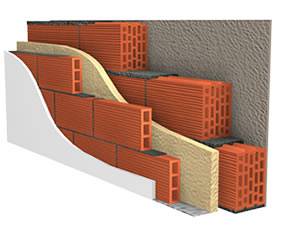The real estate industry has undergone a technological revolution in recent years, changing the way properties are bought, sold and managed. The integration of technology has streamlined processes, improved efficiency and offered new opportunities for buyers, sellers, real estate agents and developers. In this article, we will explore some of the major technology trends that have transformed the real estate market, and how these innovations are shaping the future of the industry.
Online Search Platforms
The first step for many buyers and renters is to search for properties online. Online real estate search platforms have simplified this process, allowing users to filter options by location, price, property type and specific features. These platforms also often include photos, videos and virtual tours of properties, giving prospective buyers a more detailed view before making a physical visit. In addition, some platforms are embracing virtual reality to offer immersive virtual tour experiences, making it even easier to explore homes and apartments from the comfort of home.
Big Data and Predictive Analytics
Technology has made it possible to collect and analyze large amounts of data in the real estate sector. Data related to market trends, sales prices, appraisals, average income in an area, among others, are crucial to make informed decisions. Predictive analytics has also become relevant in predicting future market behavior and, therefore, property values. This information is especially valuable for investors and real estate agents, as it allows them to identify investment opportunities and assess the potential return on a property.
Blockchain in Real Estate Transactions
The use of blockchain technology has begun to transform the way real estate transactions are conducted. The decentralization and immutability offered by blockchain technology can reduce the need for middlemen in the process of buying and selling property. Smart contracts, based on blockchain, can automate and streamline the process of property transfer and payments, which in turn decreases the risk of fraud and mistakes.
Augmented Reality in Design and Decoration of Spaces
Augmented reality (AR) has found its way into real estate by improving the way buyers visualize a property’s potential. Developers use AR apps to show what a finished real estate project would look like on a blank lot, giving buyers a clearer idea of the end result. Likewise, buyers can use AR to test different layouts and decorating styles in a property before making important decisions.
Internet of Things (IoT) for Property Management
The Internet of Things has pushed automation and efficiency in property management. With the IoT, property owners can control lighting, temperature, security and other aspects of a property remotely through connected devices. Sensors can also alert to potential problems, such as water leaks or faulty heating systems, enabling a quick response and preventing further damage.
In conclusion, technology has significantly transformed the real estate industry, streamlining processes and providing buyers, sellers and real estate agents with powerful tools to make informed decisions. As technology continues to evolve, we are likely to see more innovations that further enhance the real estate experience, driving greater efficiency and accessibility for all parties involved. Players in this sector must be aware of the latest technology trends and adapt to them in order to stay relevant in this changing real estate environment.















